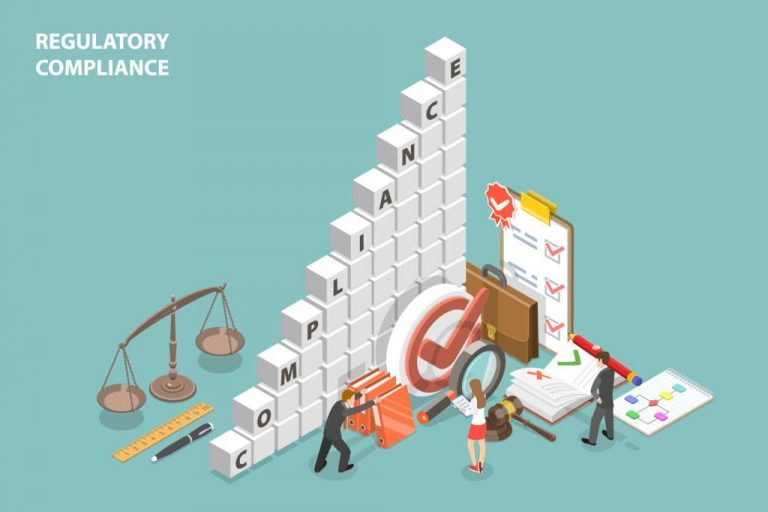In today’s digital age, law firms handle an enormous amount of data, ranging from client records to scheduling books, emails, and team member information. With such vast data, law firms must maintain a clean and organized database. This is where data cleansing services for law firms come into play.
Data cleansing is detecting, correcting, or removing defective, duplicate, or incomplete data. By implementing a robust data classification system and regularly reviewing and purging data, law firms can protect themselves against data breaches, ensure compliance with ethical rules, and optimize their performance and bottom line.
The Benefits of Clean Data
Implementing data cleansing services offers numerous benefits to law firms. Firstly, it helps protect the firm against possible data breaches. Clients entrust their sensitive and confidential information to law firms, and it is the firm’s responsibility to safeguard this data. By regularly cleaning and purging unnecessary data, law firms can minimize the risk of data compromise and maintain a secure environment.
Secondly, data cleansing ensures compliance with ethical rules regarding client record management. Lawyers are required to protect all client information, including in the event of a data breach. Establishing data security measures and regularly reviewing and purging data are essential to meeting ethical obligations.
Thirdly, clean data leads to better evaluation of a law firm’s performance and bottom line. Law firms can generate more accurate analytics and report with fresh, error-free data. This allows for more informed business decisions and improved tracking of practice area performance, revenue, cash flow, and work-in-progress reports.
Building a Data Classification System
To maintain clean data, law firms must establish a data classification system. This system categorizes data based on its level of confidentiality and importance. Most law firms use tiered classification levels such as public, sensitive, and classified. Law firms can effectively protect and manage their data by organizing data and implementing solid policies based on these categories.
To begin the classification process, law firms should identify all data the firm holds. This includes client records, filing records, document databases, scheduling books, emails, and team member information. Taking inventory of all data sources is crucial for an effective data classification system.
Once the data sources are identified, law firms should evaluate the necessity of collecting all the data. Minimizing unneeded data collection reduces the amount of data that needs to be managed and cleansed. Law firms can update client information forms and implement automatic deletion features for certain sensitive information to ensure data is retained only as long as necessary.
During the classification process, law firms should also consider factors such as data ownership, storage locations, and the substance of the data. Legal practice management software can significantly aid in organizing and protecting client data.
Cleaning Data: Out with the Old, In with the New
Once a data classification system is established, law firms can begin the process of cleaning their data. It is recommended to start with easy tasks like cleansing subscriber information. Contact information for clients who last interacted with the law firm a few years ago can often be safely removed. Clients can still find the firm quickly through its active online presence.
Law firms should also review and update bounced emails and delete non-priority records that have been inactive for years. Outdated information can make the database manageable and affect the accuracy of reports and analytics.
On the other hand, law firms should identify which data is worth retaining and make efforts to gather missing information. For example, updating client contact records and ensuring complete records for ongoing client matters are essential to maintaining accurate and up-to-date data.
Establishing Data Cleansing Policies
Law firms should establish firmwide guidelines for data entry to maintain clean data. Consistent protocols for spelling, formatting, and entering names and addresses are crucial to ensure accuracy and organization. Regularly reviewing newly added records for consistency and completeness helps catch any spam or incomplete data.
It is important to remember that data cleansing is an ongoing process. Law firms should regularly assess and purge data as a matter of course. By establishing data cleansing policies and maintaining sound data entry habits, law firms can optimize their systems and increase productivity, ultimately leading to improved revenue and client satisfaction.
Leveraging Data Cleansing Services for Law Firms
Managing and cleansing data can be a daunting task for law firms. However, there are data cleansing services specifically tailored to cater to the specific requirements of law firms. These services offer powerful search capabilities, accurate and up-to-date legal information, and various services to help law firms optimize their data management processes.
One such service provider is LawyersDataLab. Their team of experienced data cleaners specializes in helping law firms deal with the challenges of legal data management. By ensuring that all necessary information is available and accurate, LawyersDataLab enables law firms to focus on running their business efficiently.
To sum up, data cleansing services are essential for law firms to keep their database clean and well-organized. By implementing a data classification system, regularly reviewing and purging data, and leveraging data cleansing services, law firms can protect against data breaches, ensure compliance with ethical rules, and optimize their performance. With clean data, law firms can make more informed decisions, track performance accurately, and ultimately enhance their ability to serve their clients effectively. So, invest in data cleansing services today and lay the foundation for a prosperous and secure future for your law firm.
Additional Information:








Data cleansing is one of the most important thing a law firms must have
Thanks for helping me to have more know knowledge on this, Your post is very educative
Very good tips
This importance of how the data cleansing services for law firms must be have knowledge and have a deep information to how cleanse the data in and out. To know about firms to about the web .
Thanks for the information,am impressed and it also add more to me.
i now know the kind what Data cleansing means in law firms.
Thanks for sharing this vital information with us. looking forward to see and read more in your blog.
I think it is important that data is saved and purged on a needed bases that way lawyers can safegaurd their data and avoid breaches that could cost them a great deal.
Bulky data can lead to poor organization of resent and more important data
Nice information
Their service is really a good and required one for our nowadays firm. It will help them in managing their database well, and keep every where clean, clear and neat. It will make them serve their clients well and create a better future for them. Adetona Oluwafemi.
maintain clean data, law firms must I think is one of the best constitution in a data classification system. Organizes data based on its level of solitude and importance.
It going to implement solid policies based on these categories. It will be more useful and valuable.
In my own humble opinion it will be imperative that the law should have data of all their work done for future references and to help the upcoming practitioner for ease of work
Very informative and educational kudos to pu